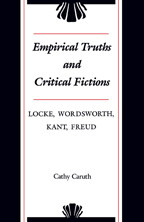
Reviews
David Rudrum's impressive book... is likely to be the standard reference on Cavell's readings of literature within the English-speaking world for a considerable time. [An] elegant book that, one hopes, will bring Cavell to the attention of many new readers.
The great merit of Stanley Cavell and the Claim of Literature is the manner [in which] Rudrum puts together numerous leading theories and approaches, sorts through them distinctly, and acknowledges their genuine driving insights. It is a thoughtful, gracefully written book.
The critical readings that Cavell has published are set against deep observations relating to structuralism, poststructuralism, New Historicism, psychoanalytic criticism, and new textualism.
Rudrum responds to the philosophical, literary, and literary-philosophical writings of Stanley Cavell in a deeply Cavellian manner. Rudrum's book is deeply compelling in its own right. It claims our attention, even while permitting Cavell also to register his claims on us.
This is an original and exciting book, true to Cavell's trailblazing work in the Emersonian categories both of instruction and of provocation.
Engaging with Stanley Cavell’s readings of Thoreau, Shakespeare, Beckett, Wordsworth, Poe, and Ibsen, David Rudrum shows that literary texts—for Cavell and for us—have a distinctive power to persist in their forms of questioning and thus to unsettle us persuasively. Yet in doing this they are also addressing and enacting the plights of subjects in worldly situations, not evaporating those situations into empty textual figures. Juxtaposing Cavell’s practices of reading against those of structuralism, poststructuralism, New Historicism, psychoanalytic criticism, and New Textualism, among others, Rudrum traces how Cavell’s critical writings, like other major writings, philosophical and literary alike, include 'an aesthetics of themselves,' so that in their densities of attention they demonstrate practices and possibilities of understanding the human as both constitutively incomplete and capable of productive attention. I cannot think of a better way of articulating the claim that literature makes on us.
Book Details
Acknowledgments
List of Abbreviated Titles
Introduction: Approaching the Unapproachable
1. Making Sense(s) of Walden
2. The Avoidance of Shakespeare
3. From the Sublime to the Ordinary: Stanley Cavell's
Acknowledgments
List of Abbreviated Titles
Introduction: Approaching the Unapproachable
1. Making Sense(s) of Walden
2. The Avoidance of Shakespeare
3. From the Sublime to the Ordinary: Stanley Cavell's Beckett
4. How to Do Things with Wordsworth
5. What Did Cavell Want of Poe?
6. "Politics as Opposed to What?": Social Contract and Marriage Contract in A Doll's House
7. Tragedy's Tragedies: Between the Skeptical and the Ethical
Conclusion: Just an Ordinary American Tragedy
Notes
Bibliography
Index





